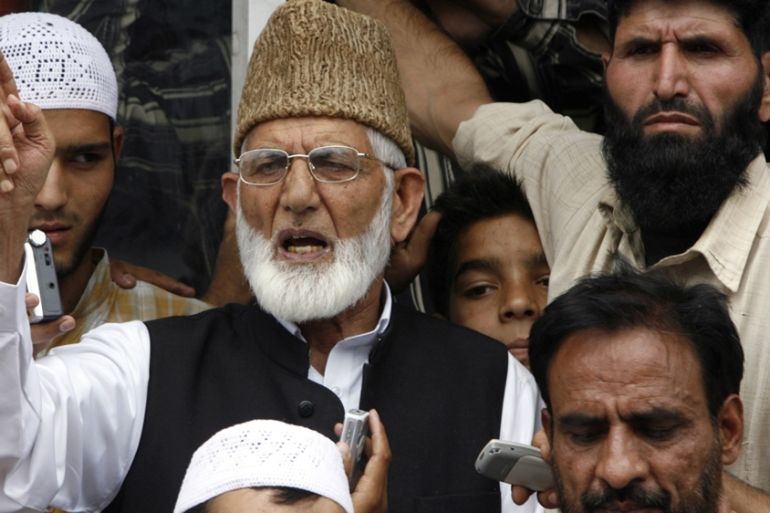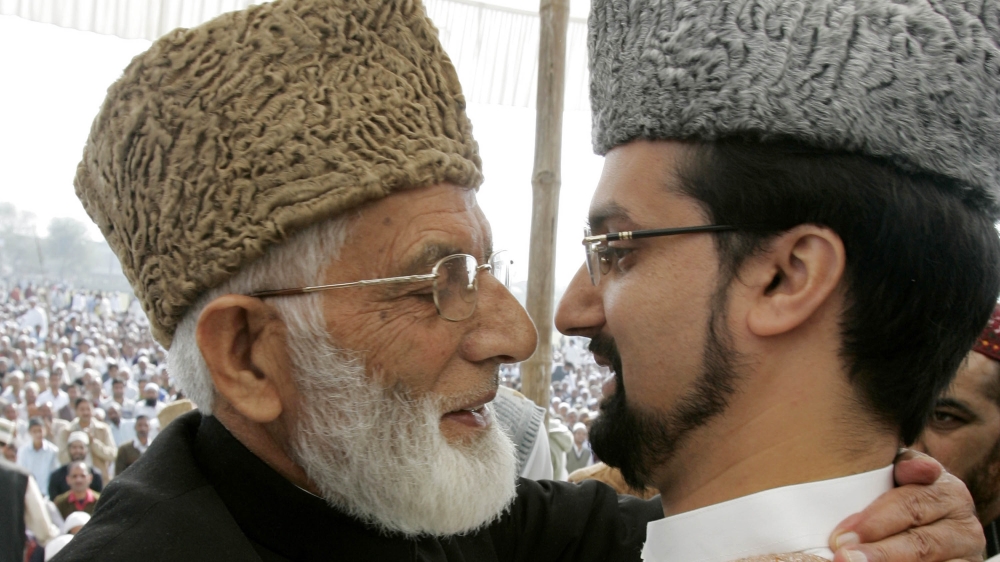Veteran Kashmir leader SAS Geelani quits pro-freedom alliance
The 90-year-old quit Hurriyat Conference faction he led for decades over alliance’s inability to counter India’s move.

A veteran politician in Indian-administered Kashmir has quit his faction within an umbrella alliance of pro-freedom groups, saying it had failed to counter New Delhi’s efforts to tighten its grip on the disputed region.
The decision of Syed Ali Shah Geelani, 90, could further weaken the region’s movement after India last August scrapped a decades-old constitutional provision giving the Jammu and Kashmir state special rights.
Geelani, who has been under house arrest in the region’s largest city, Srinagar, for several years, accused the faction he led within the umbrella Hurriyat Conference of inaction over New Delhi’s move in a two-page letter and short audio message on Monday.
“Keeping in view the present situation in Hurriyat Conference, I announce my decision to part ways with it,” he said, accusing members of the grouping of conspiring against him and saying it lacked discipline and accountability.
In the run-up to the abrogation of the Muslim-majority region’s autonomy, hundreds of pro-freedom leaders and activists were arrested and flown out of Indian-administered Kashmir to jails in several Indian cities.
A few, however, were put under house arrest in the region or were not detained at all.
Addressing those leaders, Geelani said in the letter: “After August 5, the leaders who were not arrested were expected to lead the people, give them hope. Despite my house detention and government’s curbs, I searched hard for you, but you were not available. I couldn’t do much because of my health and detention.”
On August 5 last year, Indian Prime Minister Narendra Modi’s government stripped the disputed region of its special rights and split it into two federally-administered territories.
Both India and archrival Pakistan claim the Himalayan region in full, but administer parts of it.

Hurriyat Conference was formed in 1993 by various pro-freedom groups in Kashmir to provide a political platform for independence or merger with Pakistan in the wake of an armed revolt against New Delhi.
But the group split in 2003 when a faction headed by Geelani, who advocated Kashmir’s merger with Pakistan, walked out after another group decided to hold talks with New Delhi and formed their own faction.
With the split, Geelani was elected chairman for life for his faction of the Hurriyat, made up of more than 24 constituent parties, some of which have only a handful of members.
The other faction is led by Mirwaiz Umar Farooq, who has been under house arrest since August last year. Both Hurriyats used to regularly issue statements and protest programmes.
But after India’s clampdown last year, the activities of both factions have come to a standstill.
Hurriyat leaders from Geelani’s faction were not immediately available for comment.